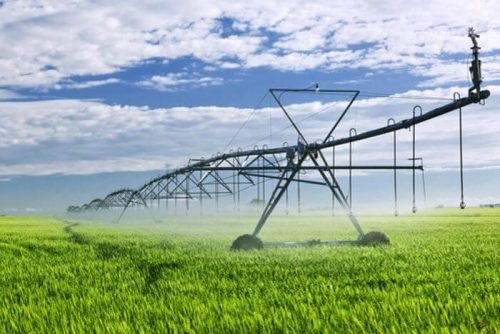
Agricultural engineering research for improved food, nutritional security
Global food insecurity persists as a significant challenge, impacting millions and destabilising socio-economic structures.
Advertisement
Recent data from the Food and Agriculture Organisation of the United Nations (FAO) indicates that 13 per cent of the population in developing countries suffers from undernourishment.
With the global population projected to reach 9.2 billion by 2050, a corresponding surge in food demand, estimated at 59 per cent to 102 per cent, underscores the imperative to augment agricultural production by 60 to 70 per cent.
Amidst this intricate crisis, Agricultural Engineering Research emerges as a beacon of hope for sustainable solutions.
In Ghana, where food security remains a pressing concern, the intersection of population growth, climate variability, and resource constraints amplify the urgency to confront this challenge.
Approximately 25 per cent of Ghana's population faces moderate to severe food insecurity, according to FAO reports.
Against this backdrop, Agricultural Engineering Research emerges as a pivotal force capable of reshaping the agricultural landscape, offering tailored solutions to bolster productivity, resilience and food security within the nation.
Encompassing precision farming, automation, robotics, irrigation, and post-harvest technologies, Agricultural Engineering Research proves essential for sustainable food systems.
Through the integration of cutting-edge technologies, this field not only promises heightened yields but also offers a key strategy to fortify agriculture against evolving environmental challenges.
Precision farming
Precision farming technologies, a hallmark of Agricultural Engineering Research, can empower Ghanaian farmers to optimise their land use and resource management.
By leveraging data-driven insights, sensor technologies and precision equipment, farmers can enhance crop yields, mitigate the impact of climate-induced uncertainties, and elevate the overall efficiency of their farming practices.
Water scarcity is a pressing issue in many regions of Ghana, affecting agricultural productivity.
Agricultural Engineering Research offers solutions through smart irrigation systems tailored to local conditions.
By adopting these technologies, Ghanaian farmers can efficiently use water resources, mitigate the impact of droughts and ensure sustainable irrigation practices, especially in regions where water is a limiting factor.
Robotics
The integration of robotics and automation in Ghana's agricultural sector addresses the persistent challenge of labour shortages.
These technologies not only enhance productivity, but also make farming more attractive to the younger generation.
The empowerment of local communities through the adoption of automated agricultural practices can contribute to economic development and resilience in the face of demographic challenges.
Post-harvest losses
Post-harvest losses are a significant concern in Ghana, with estimates suggesting that a substantial portion of harvested crops is lost before reaching consumers.
Agricultural Engineering Research offers solutions in storage, processing and transportation, ensuring that more of the harvest get to markets in optimal condition.
This reduction in waste not only enhances food security, but also improves the livelihoods of farmers by preserving the value of their produce.
The latent potential for agricultural engineering in Ghana holds the promise of revolutionising diverse agricultural processes, from refining harvesting methods to optimizing crop processing and establishing crucial storage facilities.
However, realising this potential demands a comprehensive approach involving meticulous planning, substantial investment and infrastructural development.
The absence of a structured agricultural engineering framework in Ghana yields far-reaching consequences, impacting both the economy and food security.
Low productivity, inefficient crop processing and substantial post-harvest losses due to insufficient storage facilities hinder sectoral growth, impeding the country's progress towards achieving self-sufficiency in food production.
A glaring issue is the dearth of funding for Agricultural Engineering Research, exacerbating the challenges faced by the sector.
The absence of skilled individuals, including students and engineers capable of innovating and revolutionising the agricultural sector, further compounds the problem.
While increasing the number of breeders and agronomists could potentially boost yields, the lack of means to harvest and store produce results in substantial post-harvest losses, impeding overall impact.
Addressing inadequate agricultural engineering technologies, a collaborative approach involving the government, private sector and local communities is essential.
Sustainable strategies not only require investment in suitable technologies but also emphasise skill development for farmers and the establishment of supportive policies and infrastructure.
In Ghana, international collaboration and support from various entities are crucial for expanding the adoption of Agricultural Engineering Research.
Implementing training programmes, technology transfer initiatives and targeted investments can effectively integrate advanced technologies into local agricultural practices, fostering sustainable development in the region.
Approach
Agricultural Engineering Research presents a tailored and impactful approach to address the nuances of food insecurity in Ghana.
By embracing precision farming, smart irrigation and post-harvest technologies, Ghana can fortify its agricultural resilience, enhance food security, and pave the way for sustainable development in the face of evolving challenges.
The synergy between local expertise and global knowledge transfer holds significant potential for Ghana's journey towards achieving food security and fostering economic prosperity in its agricultural sector.
The writer is a Senior Research Scientist (Agricultural Engineer),
CSIR-Crops Research Institute.




